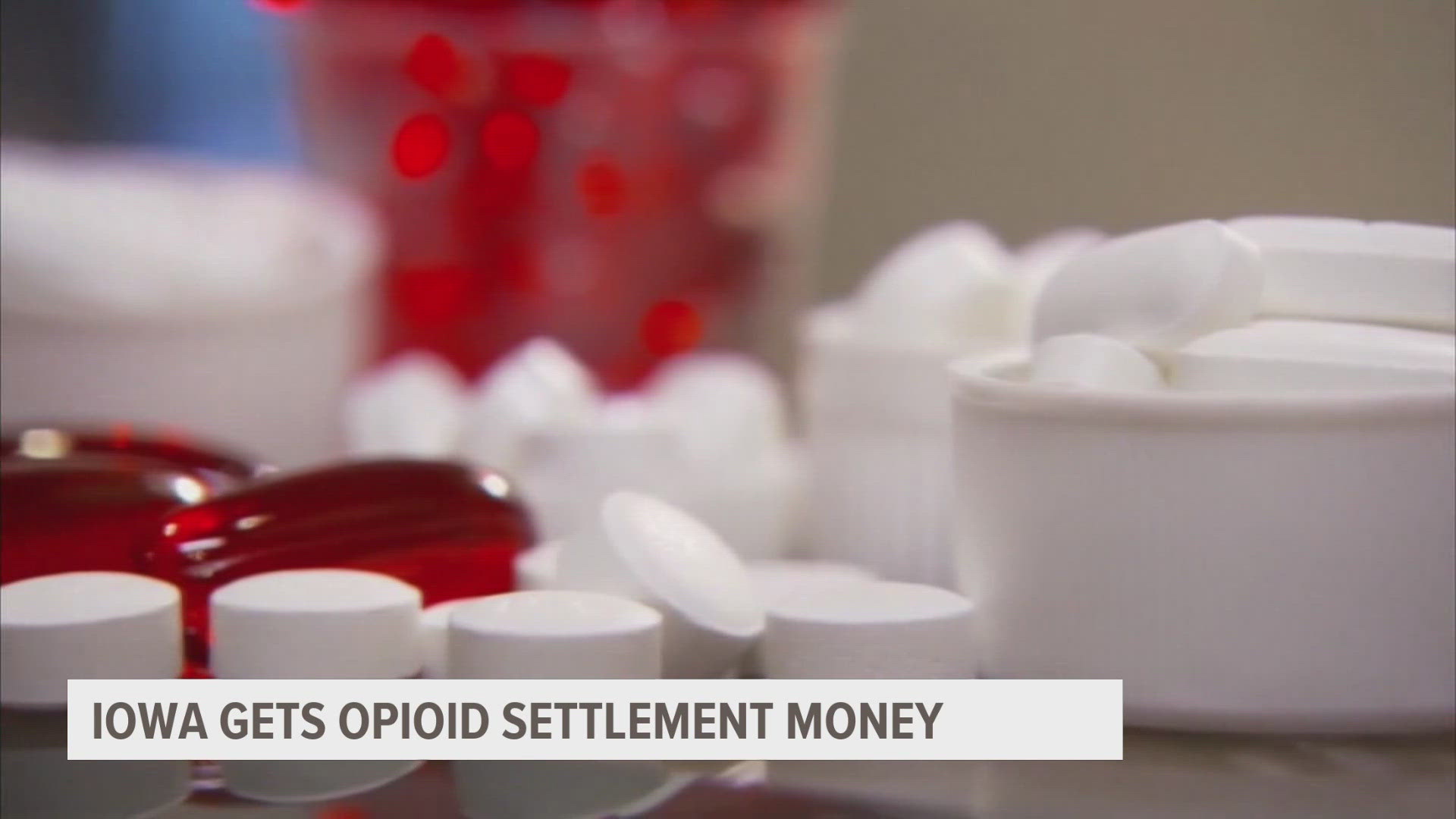DES MOINES, Iowa — Pharmaceutical companies are coughing up big bucks for their role in the opioid crisis. Multiple states have sued them, getting settlements in return. Iowa now has millions of dollars to work with. Local 5 dug into how that money will be spent in Polk County and the impact it could make.
Altogether, the state is getting $174 million worth of settlement money and Polk County is getting at least $17 million, according to Polk County Behavioral Health & Disability Services Program Planner Gabbie Ruggiero. The hope is that this money will create long term, life-saving systemic change.
“On paper that sounds like a lot of money but the truth is we can spend the whole $174 million in Polk County alone and we still would have folks that have addictions," Ruggiero said.
Those addictions can destroy people’s lives. Ruggiero hopes the settlement money can interrupt that process.
The plan for those funds has four main focus points - one is programs that address the underlying issues of substance use. This way some offenders can participate in an alternative to jail.
“Jail is an isolated environment so you’re not having the same triggers or things in the environment that you would if you were just living your everyday life so, once that person goes back into the community, they have access to that substance, they have all those triggers…,” Ruggiero said.
This would reduce the strain of the criminal justice system too with less recidivism, according to Ruggiero. Another point of focus - resources for people with substance use disorder in incarceration as well as those who are leaving. Ruggiero says people can face a lot of instability when leaving incarceration.
“They might not have employment when they get out, they might not have access to resources, and they really might feel isolated and alone," she said.
Ruggiero describes the period after incarceration as a "critical time," pointing out that the risk of overdosing is significantly higher during that time.
According to Steve Havemann, the C.E.O. of St. Vincent de Paul of Des Moines, one of the local organizations getting settlement funding, incarceration is one of the biggest predictors of negative life outcomes like substance use and homelessness.
“The only indicator that has more negative outcomes is if a young person’s been in foster care," he said.
Havemann says that the $200,000 St. Vincent is getting will expand its re-entry program, which helps people coming out of incarceration. That expansion will come in the form of an additional community navigator on staff who focuses on re-entry into society after incarceration.
Plus he says that St. Vincent is getting a peer support specialist for the first time. That means a person with lived experience with substance use will be able to help guide someone coming back from incarceration related to opioid use.
“Sometimes I think there’s a better level of understanding. A lot of times a lot of us accumulate stacks of degrees and that’s fantastic but sometimes it requires that personal experience," Havemann said.
According to the Polk County Board of Supervisors, the four other organizations getting county opioid settlement funds include Bridges of Iowa, Full Circle Recovery Community Center, Primary Health Care, and UCS Healthcare. All these organizations help people impacted by substance use.
Almost $1 million will be dispersed across those four organizations and St. Vincent over the next two years.
Ruggiero says there will be another round of funding next year, which means five more projects will be funded for two years.
Ruggiero adds that there's currently an application up for projects focusing on harm reduction, which she describes as "simply reducing the harms associated with substance use." An area that is historically underfunded according to Ruggiero.
Polk County’s opioid settlement game plan also takes on increasing available recovery housing or at least making the housing available more accessible, according to Ruggiero.
She elaborated, saying that accessibility can mean the number of beds available as well as making sure that people who are on medication-assisted treatment are accepted into recovery housing programs.
"We'd want to make sure that the housing that we are supporting with opioid settlement funds is inclusive of folks that are on all paths of recovery and in different treatment programs," she said.

